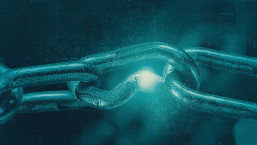A push-button function on many wireless routers designed to bypass the Wi-Fi password and provide quick access to the network could allow attackers to break in in just “one second”, reports have claimed. The Wi-Fi password flaw was found by Swiss security firm Oxcite, and allows hackers to bypass the security of Wi-Fi Protected Setup almost instantly, according to Engadget’s report. Rather than making thousands of guesses at the PIN code, the attackers make one guess, based on offline calculations. “It takes one second," Dominique Brongard of Oxcite said. "It's nothing. Bang. Done."
Wi-Fi password: “It takes one second”
The attack is the latest in a series of weaknesses uncovered in popular models of routers - and affects routers using a chipset made by Broadcom and another , as yet unnamed, manufacturer. In both cases Oxcite claims, it would take roughly “one second” to guess the hotspot’s PIN code. The attack relies on poorly generated “random” numbers, and is not inherent to WPS itself, just the (as yet undisclosed) router models. The researchers believe, however, that the Wi-Fi password security flaw is relatively common, and advise users to switch off the WPS function (done from any router’s set-up page) until the problem is known to be solved. Research has shown that many popular router models ship with known Wi-Fi password vulnerabilities among others, which activist group Electronic Frontier Foundation attributes to the relatively low price of the devices, and the difficulty of budgeting for proper security updates. A We Live Security guide to keeping small-office and home routers as secure as possible can be found here.
"It's nothing. Bang. Done."
The Wi-Fi alliance said, speaking to Ars Technica, "A vendor implementation that improperly generates random numbers is more susceptible to attack, and it appears as though this is the case with at least two devices." "It is likely that the issue lies in the specific vendor implementations rather than the technology itself. As the published research does not identify specific products, we do not know whether any Wi-Fi certified devices are affected, and we are unable to confirm the findings."




